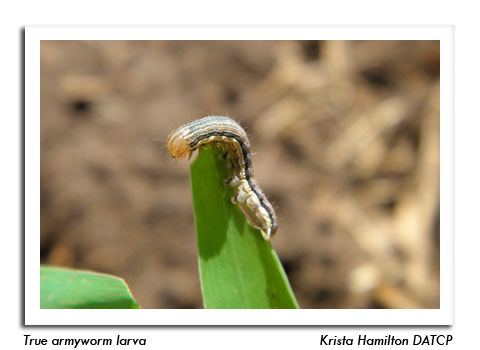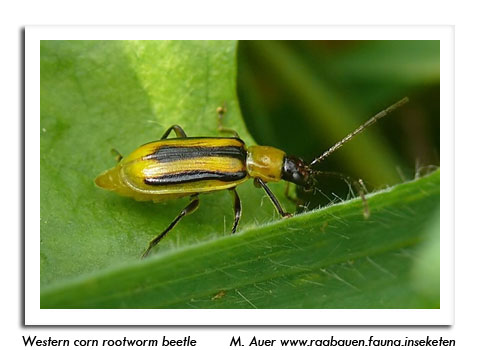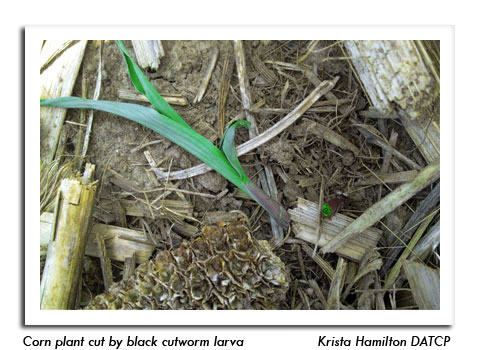
 |
|
|
Corn
Volume 57 Number 6 Date 05/17/2012 TRUE ARMYWORM - Larvae of the first generation were swept from alfalfa fields in Monroe and Sauk counties this week, signaling that scouting of corn and small grains fields should continue. Black light traps have registered high counts of 74-166 moths per week at the East Troy, Janesville, Manitowoc and Ripon locations since late April, although armyworm counts are often an unreliable criterion for predicting larval outbreaks. Reduced tillage corn fields following sod or small grains cover crops and fields with early-season grassy weed pressure are candidates for armyworm problems. Damage usually appears first at the margins of fields, where the worms have migrated from another food source. CORN ROOTWORM - A report issued by the University of Illinois-Extension confirms that larval hatch began in east-central Illinois and far western Indiana from May 4-6, the earliest hatch noted in 35 years. Drier soils and an early planting season suggest conditions will be favorable for larval establishment in Wisconsin corn fields this spring. The first larvae could begin emerging here over the weekend, with 50% hatch expected from May 25-June 1 in the Madison and La Crosse areas. This event occurs from 684-767 degree days (base 52°F). BLACK CUTWORM - Larval infestations in corn have been noted in Dane, Rock, Sauk and Walworth counties. Surveys this week found indicators of black cutworm activity, including small irregular holes in the leaves and cut plants, in a few fields checked. Damage estimates ranged from 3-13%, with an average of 4%. In most instances, no larvae were observed in association with the affected plants. The primary damage period is now in progress and could extend through mid-June this year. Crop advisors and field scouts must remain vigilant for signs of feeding injury until the V5 stage. -- Krista Hamilton, DATCP Entomologist 




|
|
|